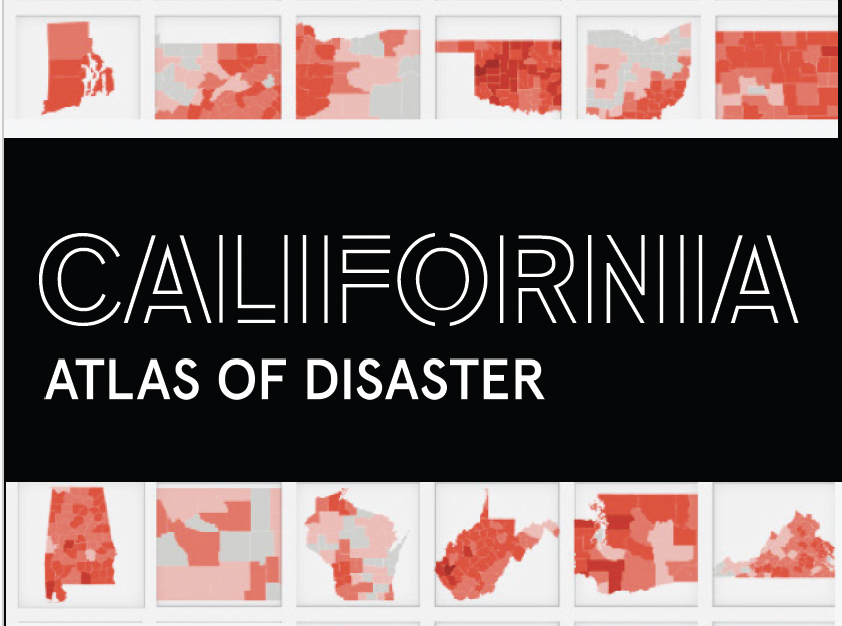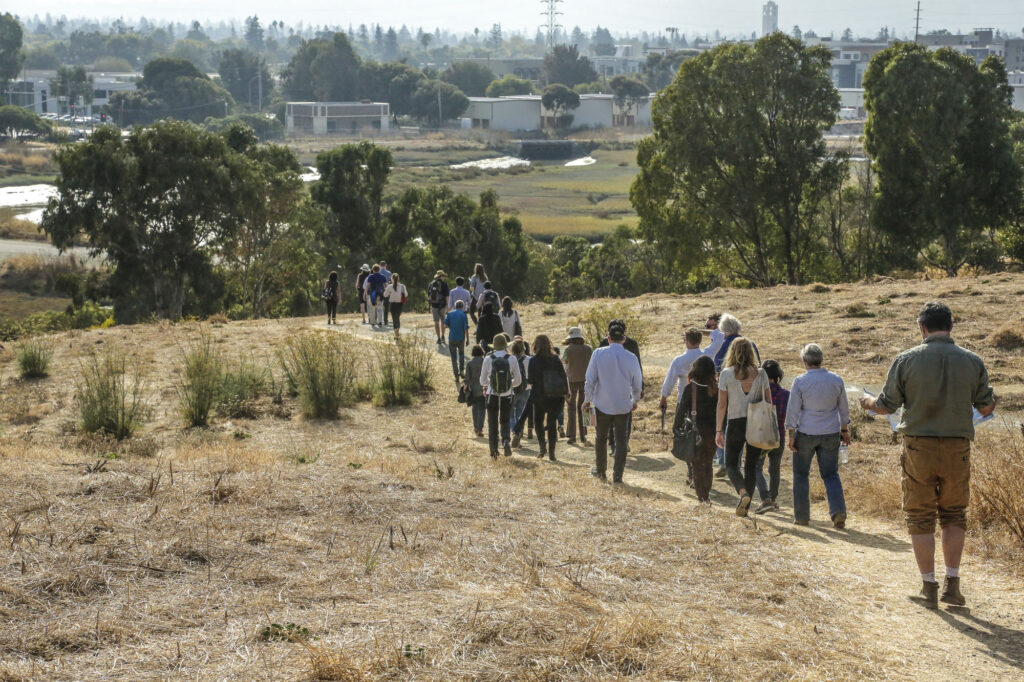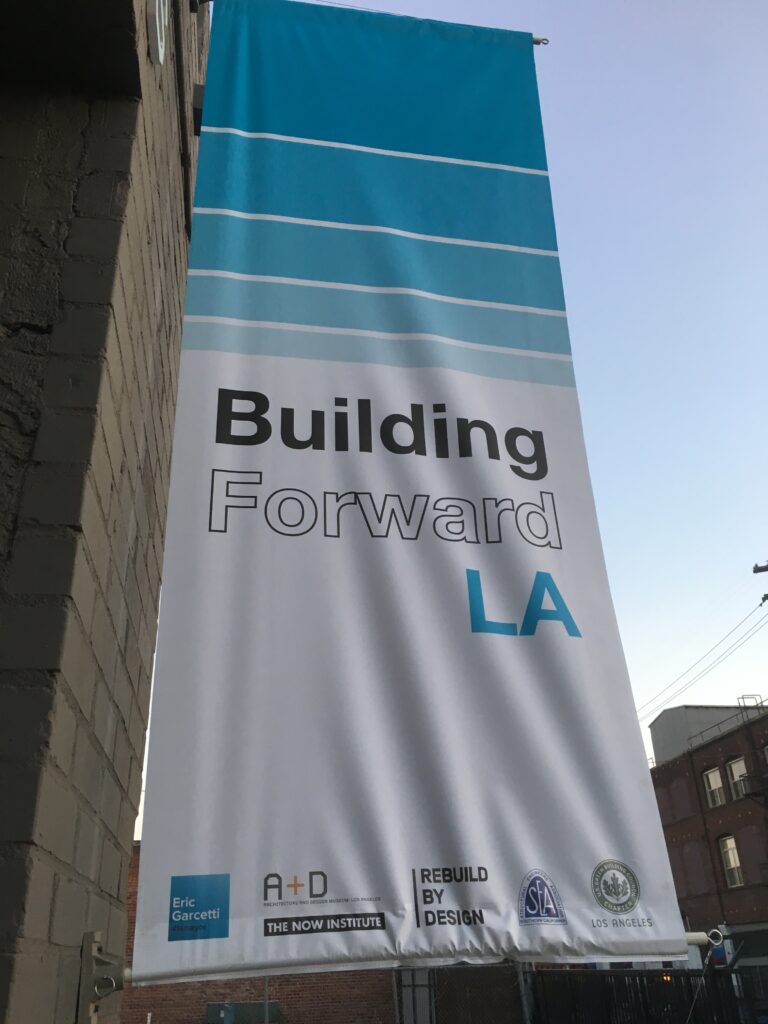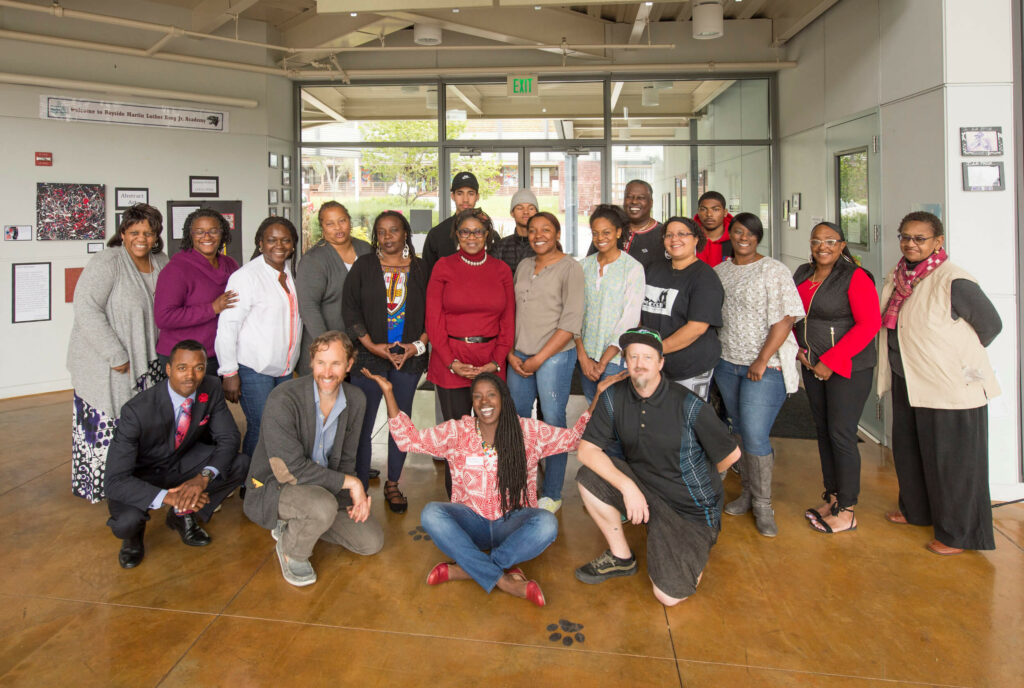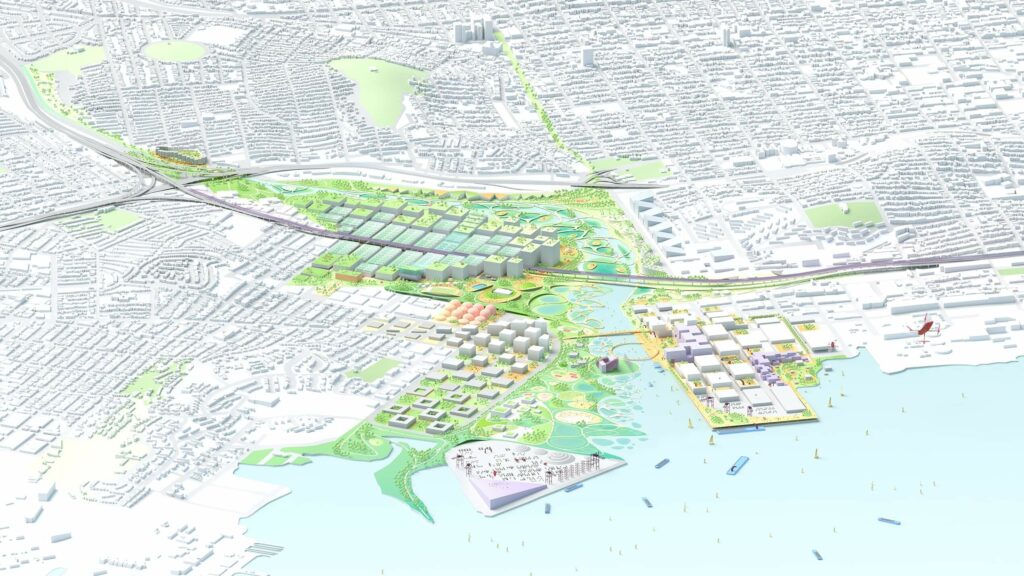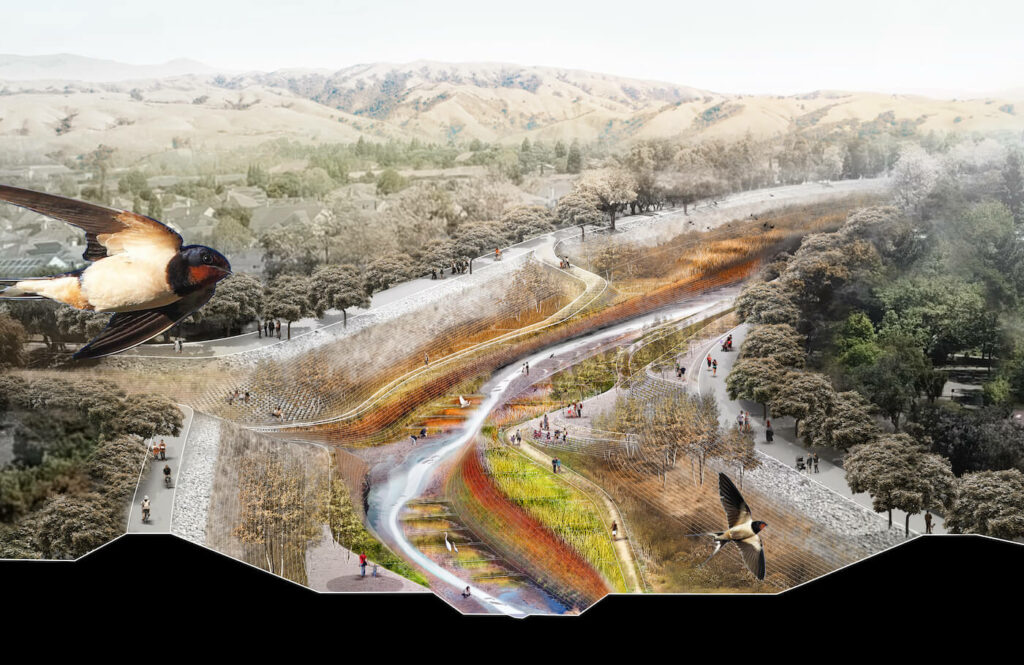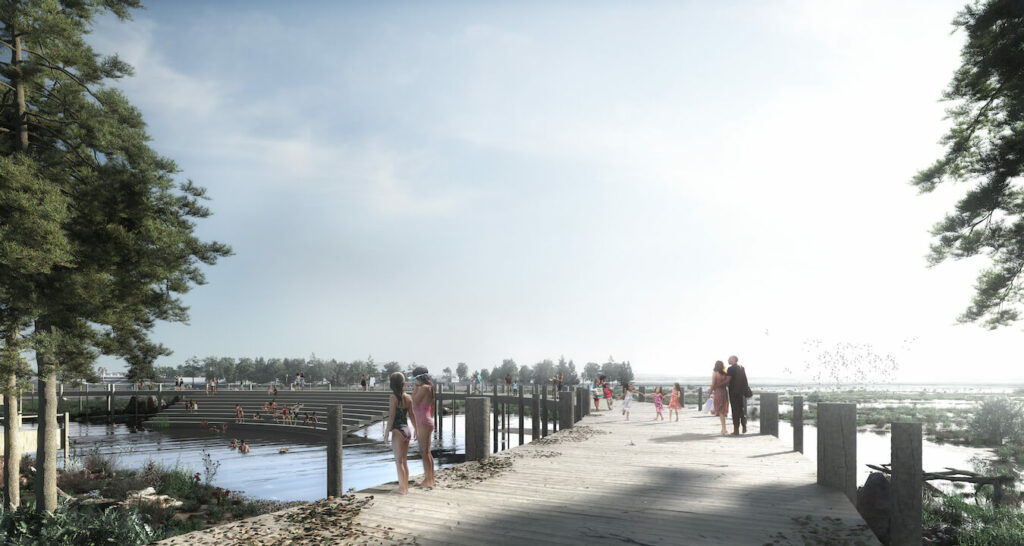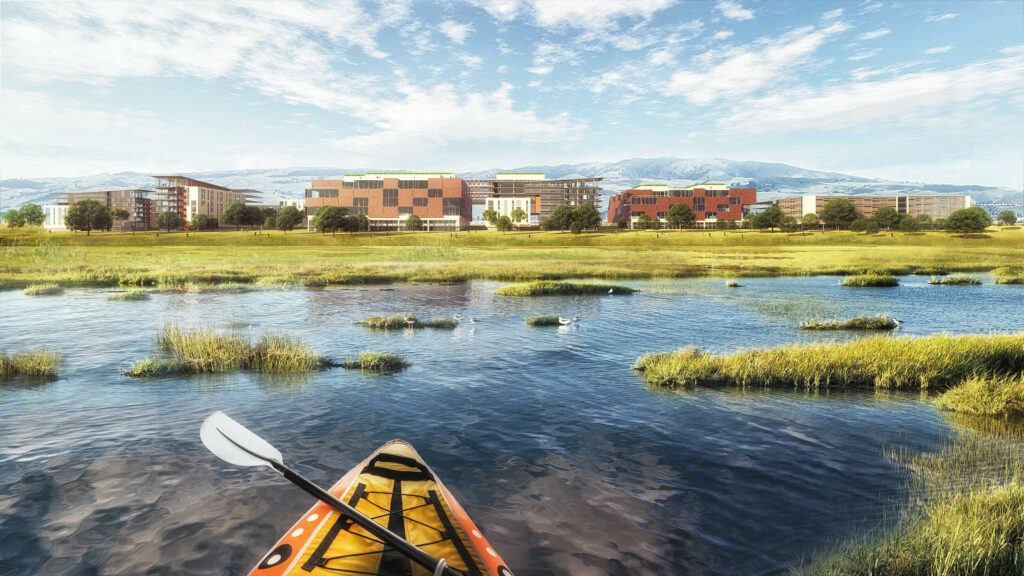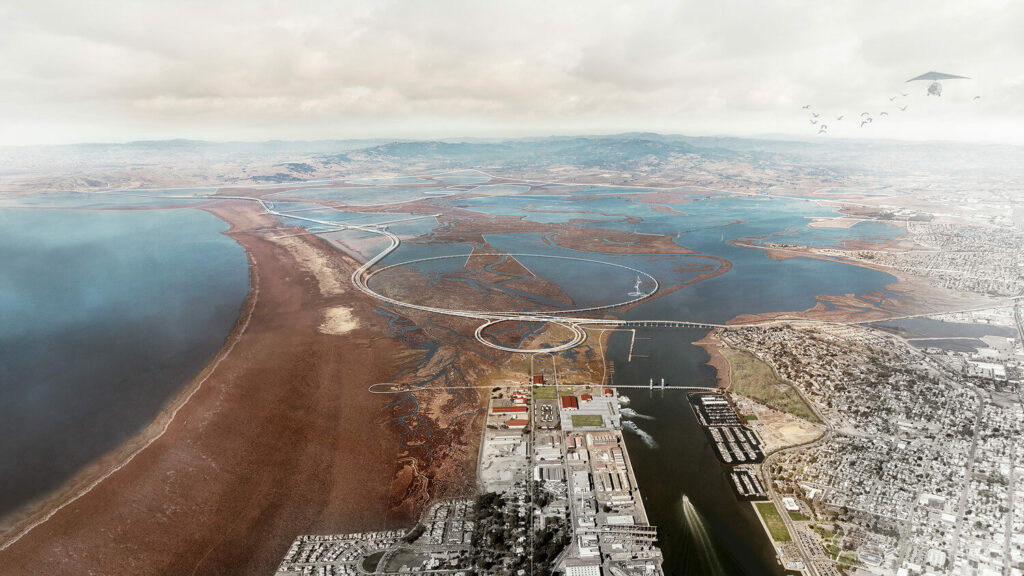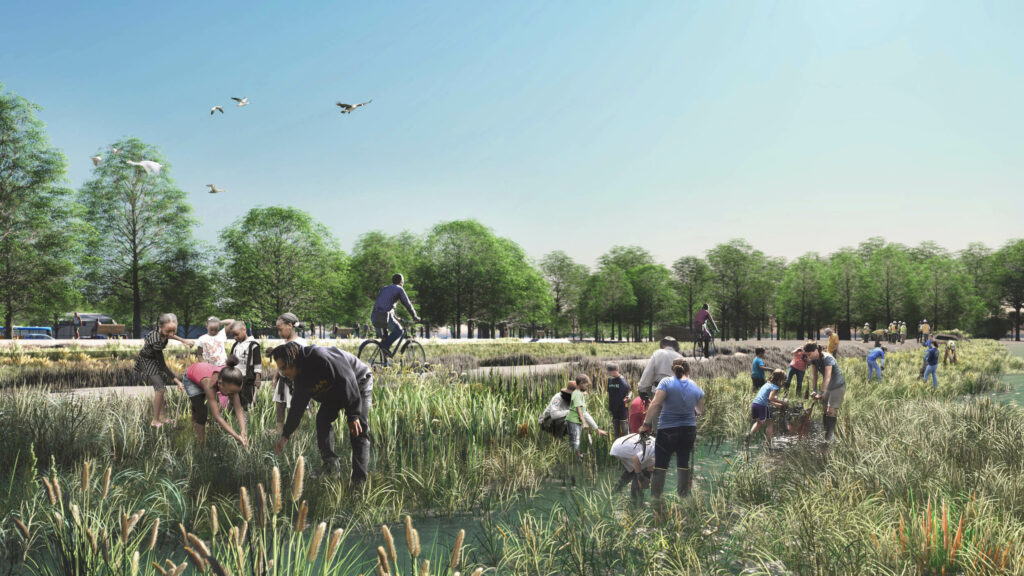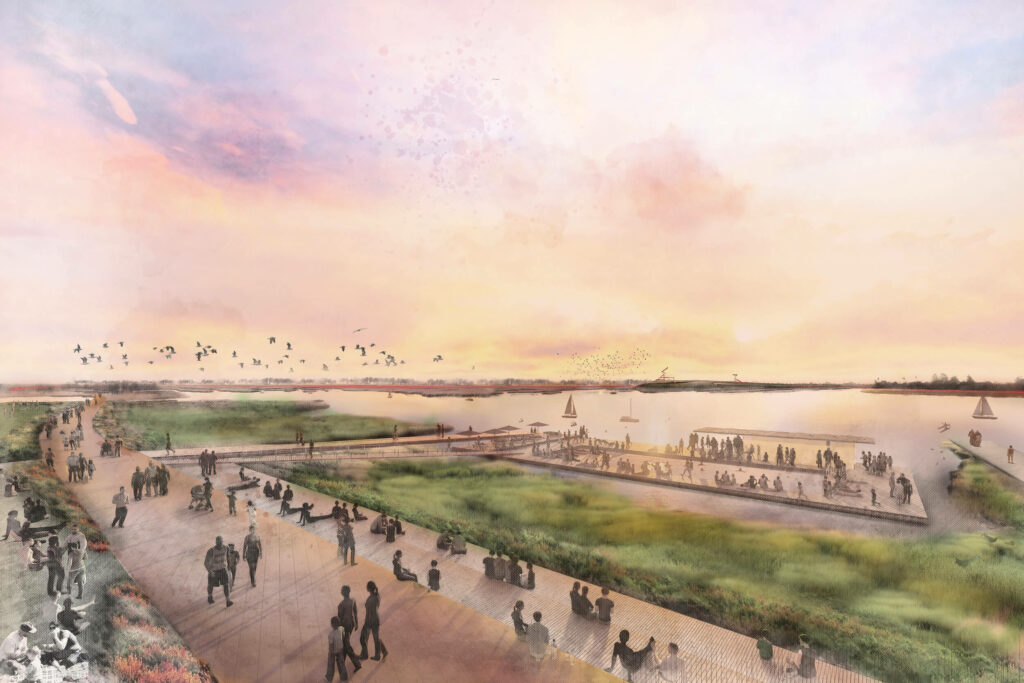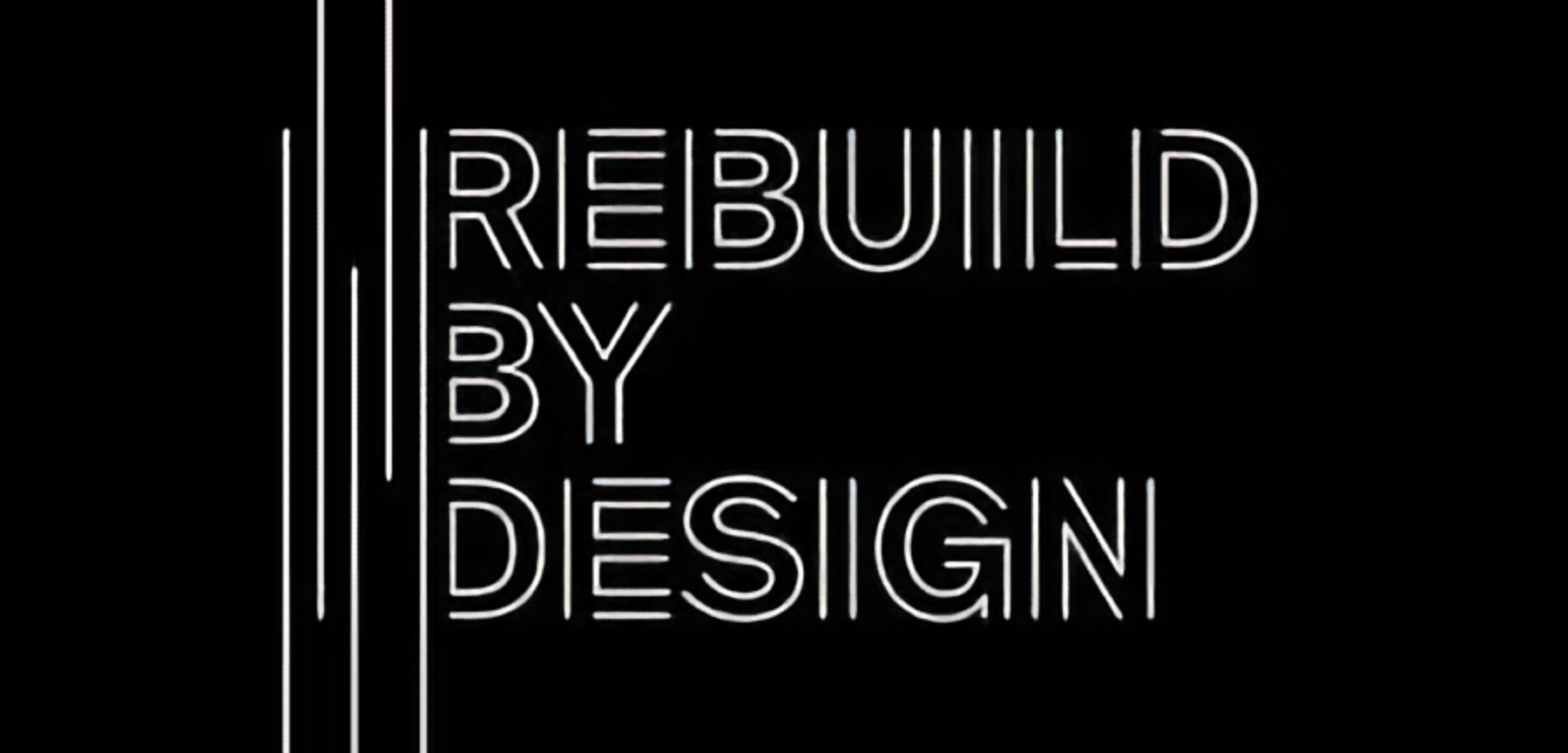
CALIFORNIA
Since 2016, Rebuild by Design has been working in California to drive investments in equitable, multi-hazard climate adaptation projects.
Our work began with a collaborative effort in Oakland, where we partnered with the city and local advocates to co-create a process aimed at improving their engagements with residents. This was followed by a Rebuild by Design University (RBD_U) event, where experts from eight universities and practitioners led panels on topics ranging from the true meaning of resilience to the unique challenges faced by those working in this field.
In 2017, we launched the Resilient by Design Bay Area Challenge (RbD) effort, a collaborative research and design competition, modeled after our Hurricane Sandy Design Competition, to proactively address flooding.
Today, Rebuild continues to collaborate with communities throughout California and expand local understanding of the impacts of climate change.
LOCAL ENGAGEMENTS
From 2011-2021 the state of California had 25 presidentially declared major disaster declarations due to extreme weather, ranking it the state with highest number of disasters in the country. These disasters cost taxpayers more than $6.2 billion dollars in federal post-disaster assistance from FEMA and the Department of Housing and Urban Development (HUD).
As flood risks increase due to intensified severe storms and sea level rise, organizers asked the question – can the Bay Area come together to shift its course and build a more resilient region before a big disaster hits, and can we address other regional challenges along the way?
The City of Oakland engages with its residents on a variety of issues from large scale neighborhood redevelopment to changing public policies.
Building rules and processes are designed to protect health, safety and the environment, but they can also govern design choices. Even as technology, engineering, and architectural innovations advance our goals, policies and procedural barriers often make advancement in building design difficult, time consuming, or costly to implement.
Bay Area academics, students, and practitioners convened to test and define elements of a shared curriculum for teaching resilience planning and design, specifically such that it reflects the challenges and resources in the Bay Area.
